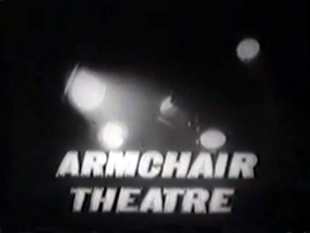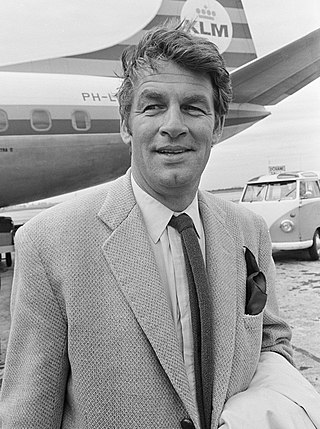Related Research Articles

Mulholland Drive is a 2001 surrealist mystery film written and directed by David Lynch, and starring Justin Theroux, Naomi Watts, Laura Harring, Ann Miller, and Robert Forster. It tells the story of an aspiring actress named Betty Elms (Watts), newly arrived in Los Angeles, who meets and befriends an amnesiac woman (Harring) recovering from a car accident. The story follows several other vignettes and characters, including a Hollywood film director (Theroux).
A British sitcom or a Britcom is a situational comedy programme produced for British television.

Trent's Last Case is a detective novel written by E. C. Bentley and first published in 1913. Despite the title, it is in fact the first work in which its central character, the artist and amateur detective Philip Trent, appears: he subsequently reappeared in the novel Trent's Own Case (1936), and the short-story collection Trent Intervenes (1938).

Laurence Harvey was a Lithuanian-born actor and film director. He was born to Lithuanian Jewish parents and emigrated to South Africa at an early age, before later settling in the United Kingdom after World War II. In a career that spanned a quarter of a century, Harvey appeared in stage, film and television productions primarily in the United Kingdom and the United States.

Sir Roger George Moore was an English actor. He was the third actor to portray fictional secret agent James Bond in the Eon Productions/MGM Studios film series, playing the character in seven feature films: Live and Let Die (1973), The Man with the Golden Gun (1974), The Spy Who Loved Me (1977), Moonraker (1979), For Your Eyes Only (1981), Octopussy (1983), and A View to a Kill (1985). Moore's seven appearances as Bond are the most of any actor in the Eon-produced entries.

George Morris Baker, MBE was an English actor and writer. He was best known for portraying Tiberius in I, Claudius, and Inspector Wexford in The Ruth Rendell Mysteries.

George Robert Lazenby is a retired Australian actor. He was the second actor to portray the fictional British secret agent James Bond in the Eon Productions film series, playing the character in On Her Majesty's Secret Service (1969). Since he appeared in only one film, Lazenby's tenure as Bond is the shortest among the actors in the series.

A Matter of Life and Death is a 1946 British fantasy-romance film set in England during World War II.

Alan John Clarke was an English television and film director, producer and writer.

Nineteen Eighty-Four is a British television adaptation of the 1949 novel of the same name by George Orwell, originally broadcast on BBC Television in December 1954. The production proved to be hugely controversial, with questions asked in Parliament and many viewer complaints over its supposed subversive nature and horrific content. It starred Peter Cushing, Yvonne Mitchell, Donald Pleasence and André Morell.

Armchair Theatre is a British television drama anthology series of single plays that ran on the ITV network from 1956 to 1974. It was originally produced by ABC Weekend TV. Its successor Thames Television took over from mid-1968.

William Inglis Lindon Travers was a British actor, screenwriter, director and animal rights activist. Before his show business career, he served in the British Army with Gurkha and special forces units.

The Country Bears is a 2002 American musical road comedy film directed by Peter Hastings, produced by Walt Disney Pictures, and based on the Disney theme park attraction Country Bear Jamboree. The film stars Christopher Walken, Daryl Mitchell, Diedrich Bader, Alex Rocco, and Haley Joel Osment as the voice of Beary Barrington with the voice talents of Candy Ford, James Gammon, Brad Garrett, Toby Huss, Kevin Michael Richardson, and Stephen Root.

Southern Comfort is a 1981 American action-war drama- thriller film directed by Walter Hill and written by Michael Kane, Hill and his longtime collaborator David Giler. It stars Keith Carradine, Powers Boothe, Fred Ward, T. K. Carter, Franklyn Seales and Peter Coyote. The film, set in 1973, features a Louisiana Army National Guard squad of nine from an infantry unit on weekend maneuvers in rural bayou country as they antagonize some local Cajun people and become hunted.

Carry On Nurse is a 1959 British comedy film, the second in the series of 31 Carry On films (1958–1992). Of the regular team, it featured Joan Sims, Kenneth Williams, Kenneth Connor and Charles Hawtrey, with Hattie Jacques and Leslie Phillips. The film was written by Norman Hudis based on the play Ring for Catty by Patrick Cargill and Jack Beale. It was the top-grossing film of 1959 in the United Kingdom and, with an audience of 10.4 million, had the highest cinema viewing of any of the "Carry On" films. Perhaps surprisingly, it was also highly successful in the United States, where it was reported that it played at some cinemas for three years. The film was followed by Carry On Teacher 1959.

Universal Soldier is a 1971 film directed by Cy Endfield and starring George Lazenby as a mercenary. It was the final film of Endfield, who also has an acting role in it. The title came from the 1964 song of the same name by Buffy Sainte-Marie.

The Standard-Times, based in New Bedford, Massachusetts, is the largest of three daily newspapers covering the South Coast of Massachusetts, along with The Herald News of Fall River and Taunton Daily Gazette of Taunton, Massachusetts.

The Batman/Superman Hour is a Filmation animated series that was broadcast on CBS from 1968 to 1969. Premiering on September 14, 1968, this 60-minute program featured new adventures of the DC Comics superheroes Batman, Robin and Batgirl alongside shorts from The New Adventures of Superman and The Adventures of Superboy.

Alfred Hitchcock Presents, sometimes called The New Alfred Hitchcock Presents, is an American television anthology series that originally aired on NBC for one season from September 29, 1985 to May 4, 1986, and on the USA Network for three more seasons, from January 24, 1987, to July 22, 1989, with a total of four seasons consisting of 76 episodes. The series is an updated version of the 1955 eponymous series.

The Full Treatment is a 1960 black-and-white British thriller film directed by Val Guest and starring Claude Dauphin, Diane Cilento and Ronald Lewis. It is based on the 1959 novel of the same name by Ronald Scott Thorn.
References
- ↑ Allan, Elkan. "Stripping wives and assets." Sunday Times [London, England] 25 Feb. 1973: 48. The Sunday Times Digital Archive. Web. 29 Mar. 2014.
- ↑ Leonard Buckley. "The Operation." The Times [London, England] 27 February 1973 p. 11. The Times Digital Archive. Web. 6 April 2014.
- ↑ Clive Gammon, "Television: Barrel's bottom" The Spectator 3 March 1973 p. 17
- ↑ "Sex scenes in play 'broke BBC's guidelines'." The Times [London, England] 6 Apr. 1973: 2. The Times Digital Archive. Web. 6 Apr. 2014.
- ↑ Roger Smith at BFI Screenonline